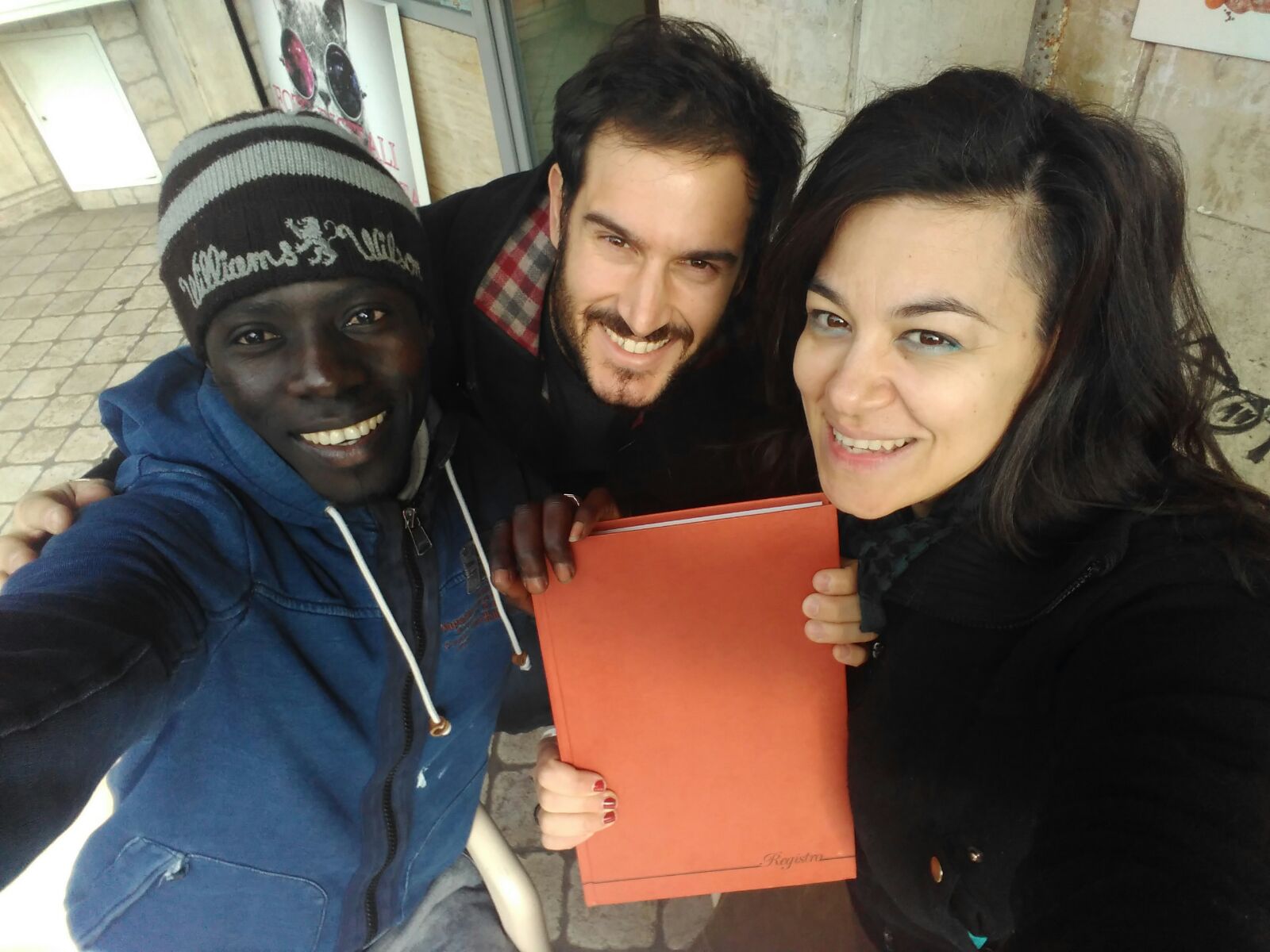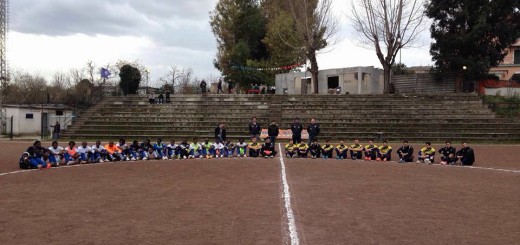Social secretariat, a new project of listening and supporting
 “We began the activity of the Social Secretariat with Singhateh. We saw each other, we spoke to each other and we listened to his difficulties and problems. We were struck by the atmosphere created; it was a dense day. At the end, a couple of minutes after leaving, I received a text message. He thanked me and said he was happy for the help we had given him,” David says.
“We began the activity of the Social Secretariat with Singhateh. We saw each other, we spoke to each other and we listened to his difficulties and problems. We were struck by the atmosphere created; it was a dense day. At the end, a couple of minutes after leaving, I received a text message. He thanked me and said he was happy for the help we had given him,” David says.
Since December 2017, Liberi Nantes has undertaken a new project of helping, listening and supporting the lads who make up the team. Through the office of the Social Secretariat the guys have the chance to deal with some of the critical issues they face every day. Every Tuesday and Friday afternoon, at the same time as the team training session, Angela Paladino, the co-ordinator of the project, Roberta Spano and David D’Agnelli, offer the players the possibility of a dialogue. Interview, discussion and monitoring over time are the modes of operation.
“We got closer to the life stories of the people who make up the team. Over time, several critical issues emerged from our dialogues with them. For example, there are people who have never put together a CV, they don’t have the know-how to look for a job, or what kind of services are available in the area. A lot of issues are related to their legal position and the awareness they have of this,” Angela Paladino explains.
She continues: “We have discovered various issues. We began little by little to get them into the territorial network, to explain to them how the various forms work, and the relations with the services of the area. We have worked on that which is a constant for people seeking asylum in Italy: the long delays, which become delays to life. These create internal fractures and, in the long term, people forget who they are and need to find themselves again”.
An important and gratifying element for the guys is the Passport of planet earth, which was invented by the organisers of the social secretariat. “It includes all the important steps a young person makes during his/her path to integration, with a view towards being autonomous. It’s a home-made passport, made from card, with the name and surname of the person on the first page. Inside, are all the steps that we identify and reach with the young person,” Angela says.
The response of the youngsters has been extraordinary. “For me this is a beautiful experience. The youngsters have shown their desire to do something, to be involved. Gradually, they have told us their stories, each in his/her own time. Whoever wishes to speak to us does so when and how they want. The passport is something we came up with to reward each step taken by the youngsters”, Roberta Spano says.
Valerio Maggio


